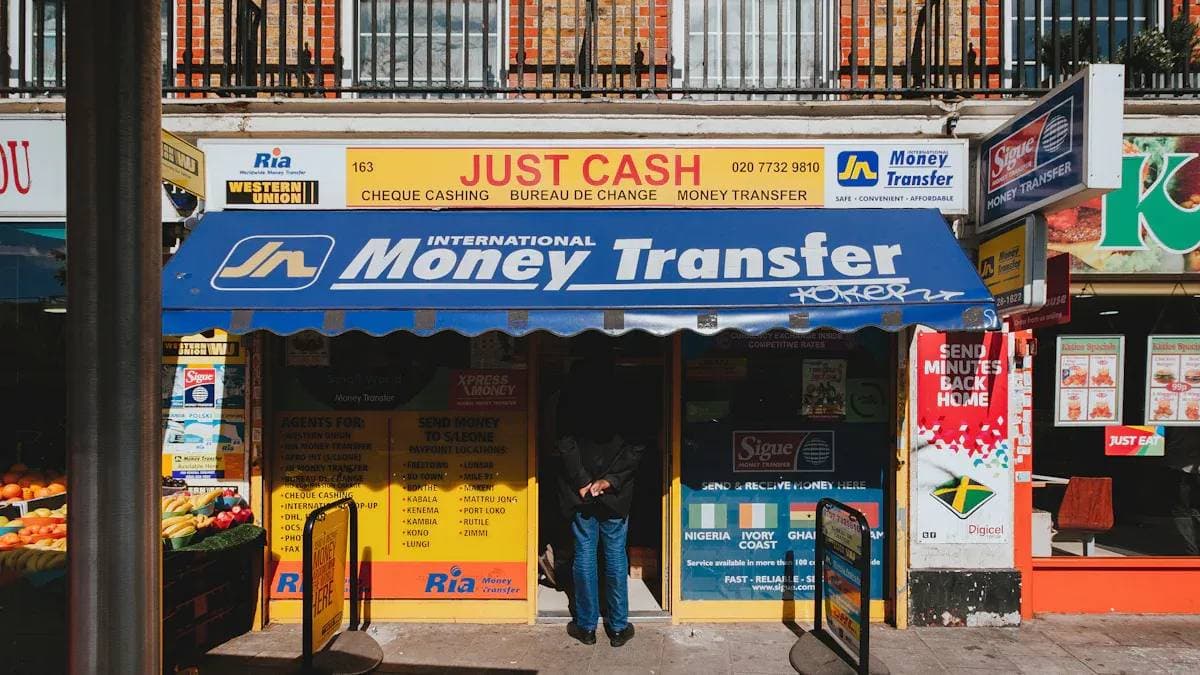- EasyCard
- Trade
- Help
- Announcement
- Academy
- SWIFT Code
- Iban Number
- Referral
- Customer Service
- Blog
- Creator
No More Worries About Fees! Mastering the Process and Techniques to Reduce Costs with Western Union
Western Union, a globally renowned money transfer service provider, offers convenient solutions for international fund transfers. However, many users are concerned about the potential high fees associated with using Western Union’s services. This article aims to detail the basic process of making a Western Union transfer and share several practical strategies to minimize costs while enjoying Western Union’s services.

Overview of the Western Union Transfer Process
- Account Registration and Login: First, you need to register an account on Western Union’s official website or through its mobile app. The registration process requires filling in some basic personal information and verifying your identity.
- Initiating a Transfer: After logging in, select the transfer option, enter the transfer amount, and choose the destination country. Provide detailed information about the recipient, including their full name, address, and possible bank account information.
- Choosing a Payment Method: Western Union allows multiple payment methods, including direct deductions from bank accounts, payments using credit cards, or debit cards.
- Confirming Transfer Information and Payment: Before submitting, confirm all transfer details again, including the amount, recipient information, payment method, and total cost. After payment, you will receive a Money Transfer Control Number (MTCN) for tracking and receiving status updates.
- Receiving Funds: Depending on the chosen service type, the recipient can receive the funds at a designated agent location or their bank account within a few minutes to a few days.
Fee Composition
Western Union’s fees typically consist of several components:
- Transfer Fees: This is the primary fee charged by Western Union, which varies based on the transfer amount, method, and destination.
- Exchange Rate Margin: Western Union’s offered exchange rates are usually lower than the market rates, which can be considered a hidden cost.
- Other Possible Fees: Depending on specific transfer needs, there might be additional fees, such as expedited service fees or fees related to specific payment methods (like credit cards).
Fee Calculation
- Based on Amount and Destination: Fees are usually based on the transfer amount and destination. Smaller transfers may enjoy lower fees, while larger amounts incur higher fees.
- Impact of Payment Method: Transferring via a bank account typically incurs lower fees, whereas using credit cards or debit cards may involve additional charges.
- Receiving Method: The method of fund reception also affects fees, for example, choosing cash pickup usually costs more than bank account transfers.
Alternatives
If you are looking for a service with lower fees or better exchange rates, consider the more convenient global multi-asset trading wallet - BiyaPay. For those looking to make cross-border transfers or investments, BiyaPay is a more convenient tool than traditional banks.
BiyaPay offers fast, secure, and low-cost international money transfer services, supporting local transfers in most regions and countries globally. It supports large transfers with fees as low as 0.5%, making it an ideal choice for overseas investors.
It supports real-time exchange of digital currencies (such as USDT) for mainstream fiat currency services such as USD and GBP, making it easier and more reassuring for digital currency traders to manage their funds.
Ways to Save on Fees
- Choose an Economical Payment Method: Direct bank account deductions generally cost less than using credit cards or debit cards, as the latter may involve additional processing fees.
- Avoid Urgent Transfers: If it is not urgent, avoid choosing expedited transfer services, as these usually carry higher fees.
- Compare Exchange Rates and Fees: Before actually transferring, use Western Union’s fee estimation tool on their website to preview and compare exchange rates and total fees.
- Optimize Transfer Amounts: Adjusting the transfer amount according to Western Union’s fee structure may help you further reduce costs. Sometimes, transferring a larger amount at once is more economical than sending multiple smaller amounts.
- Use Promotional Codes: Keep an eye on Western Union’s promotional activities, such as discount codes or offers for first-time users, which can significantly reduce transfer costs.
- Choose the Receiving Method: The method of receipt also affects the total fees. If possible, having the recipient receive funds through a bank account usually costs less than cash pickup.
While Western Union transfers are convenient and quick, their fees are an important consideration. Understanding the composition and calculation of fees can help users more effectively manage and plan their international transfers, ensuring that while meeting their transfer needs, they also control costs. Before making any transfer, it is crucial to understand all related fees and terms and choose the transfer method that best suits your needs.
*This article is provided for general information purposes and does not constitute legal, tax or other professional advice from BiyaPay or its subsidiaries and its affiliates, and it is not intended as a substitute for obtaining advice from a financial advisor or any other professional.
We make no representations, warranties or warranties, express or implied, as to the accuracy, completeness or timeliness of the contents of this publication.




Contact Us
Company and Team
BiyaPay Products
Customer Services
is a broker-dealer registered with the U.S. Securities and Exchange Commission (SEC) (No.: 802-127417), member of the Financial Industry Regulatory Authority (FINRA) (CRD: 325027), member of the Securities Investor Protection Corporation (SIPC), and regulated by FINRA and SEC.
registered with the US Financial Crimes Enforcement Network (FinCEN), as a Money Services Business (MSB), registration number: 31000218637349, and regulated by FinCEN.
registered as Financial Service Provider (FSP number: FSP1007221) in New Zealand, and is a member of the Financial Dispute Resolution Scheme, a New Zealand independent dispute resolution service provider.



















